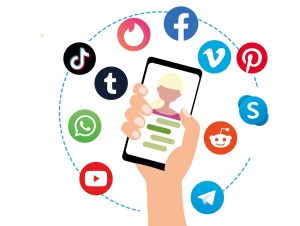Influencers, Social Media, and Nutrition Misinformation: A Deep Dive
In an age where social media reigns supreme, it has profoundly influenced the nutrition landscape. However, unraveling this intricate web is anything but straightforward. Enter the world of influencers—individuals who package complicated topics into simple, one-size-fits-all hacks. While some tips may stem from good intentions, many can easily mislead consumers. At worst, these strategies serve as clever tactics for commercial gain, whether promoting personal products or affiliate brands.
A Bad Influence(r)
Food and nutrition content thrives on visual platforms like Instagram and TikTok, often becoming a marketing tool. Influencers and brands skillfully exploit this emotive medium. Research underlines the alarming ability of social media to sway behavior. A recent study revealed that 57% of Millennial and Gen Z TikTok users have been influenced by nutrition trends, 67% of whom adopted these trends multiple times a week. Yet, troublingly, only 2.1% of nutrition-related content adheres to established public health guidelines.
Getting the (Wrong) Message Across
A 2024 report titled Nutrition Misinformation in the Digital Age sheds light on this pressing issue. Jointly authored by Rooted Research Collective (RRC) and the Freedom Food Alliance (FFA), the study scrutinized 53 key accounts with audiences exceeding 24 million followers. What they discovered is both fascinating and troubling.
Influencers employ diverse tactics—shaping their messages to engage specific audiences. Emotional storytelling and claims of authority are common methods. Additionally, strategies range from fear-mongering to joy-mongering, using aspirational narratives to counteract fear-driven messaging. Unlike traditional media, the nature of social platforms allows quick edits, reposts, or deletions, enabling misleading information to outstrip fact-based communication at lightning speed. Even a few accounts sharing misinformation can create far-reaching impacts. Alarmingly, 1 in 5 Americans trust health influencers more than local medical professionals.
Types of Social Media Personalities and Their Messaging Styles
The Doc: Leveraging the title ‘Dr.’ to gain credibility, these individuals can significantly influence their audiences, even if they’re not medical professionals.
The Rebel: Disruptors who reject mainstream narratives, often using emotionally charged and alarmist messaging tied to social or political ideologies.
- The Hustler: Entrepreneurs who combine wellness marketing with personal transformation stories, embedding dietary misinformation within an aspirational lifestyle context.
Source: Nutrition Misinformation in the Digital Age, 2024-2025
The researchers identified key themes of misinformation rampant on these platforms. A staggering 28.8% of misinformation promotes carnivore and meat-based diets. This is closely followed by general health and nutrition misinformation at 24.5%, and 23.7% focuses on low-carb and ketogenic diets. Strikingly, over 90% of the superspreaders shared content covering multiple misinformation themes.
Different Intent, Same Problem
Understanding the distinction between misinformation and disinformation is essential. Misinformation refers to false or misleading information shared without malicious intent, whereas disinformation is deliberately crafted to mislead or manipulate. Both forms are on the rise in social media circles, jeopardizing public health by promoting harmful dietary practices.
Alice Millbank, co-founder and chief scientific officer at RRC, notes that the complexity of nutrition makes simplistic solutions attractive. During her discussions at the upcoming Active Nutrition Summit, she emphasized that superspreaders exploit confusion, offering dangerously simplistic answers often driven by profit, rather than scientific evidence. “Many superspreaders promote their own range of supplements,” she remarked, advocating for a more holistic approach to dietary guidance.
Tackling Misinformation on Social Media
The report underscores an urgent need for public health strategies that marry credibility with emotional engagement to rebuild trust and combat harmful misinformation.
Proposed Solutions
Early Education: Embed nutrition education into school curricula, emphasizing practical skills such as cooking healthy meals on a budget. This empowers youth to make informed dietary choices.
Digital Awareness: Equip children with critical thinking skills to question online content, fostering digital literacy from a young age.
Engaging Professionals: It may be time to recalibrate how public health messages are disseminated. Supporting qualified nutrition professionals to engage meaningfully on social media could provide a resonant counter-narrative to misinformation.
- Combating Deceptive Claims: A concerted effort to challenge misleading or commercial claims disguised as medical authority could limit their reach and enhance public awareness.
In this complex world of nutrition misinformation and influencer power, the responsibility lies with both consumers and content creators. By advocating for informed consumer choices and promoting factual guidance, we can reclaim our health narratives from the grasp of misinformation.






